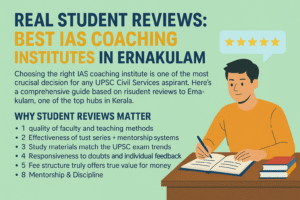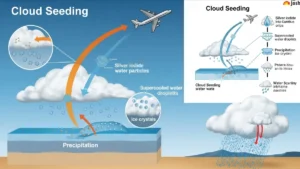Day 2 of the SSB Interview process is centered around a series of psychological tests designed to assess your personality, behavioral tendencies, thought processes, and emotional intelligence. Unlike academic exams, these tests focus on your subconscious mind and help psychologists evaluate your officer-like qualities (OLQs) without direct questioning.
This stage is extremely important because it gives the assessors deep insight into who you are — how you think, feel, react, and perceive the world around you.
In this article, we will cover all four psychological tests conducted on Day 2 of the SSB Interview:
-
Thematic Apperception Test (TAT)
-
Word Association Test (WAT)
-
Situation Reaction Test (SRT)
-
Self Description Test (SDT)
Objective of SSB Psychological Tests
The primary goal of the psychological tests is to understand the candidate’s natural personality. These tests aim to bring out qualities such as decision-making ability, initiative, confidence, adaptability, responsibility, and emotional stability — all of which are essential in a future leader of the Armed Forces.
Unlike interviews or group discussions, these are projective tests that analyze your inner thoughts and behavior patterns.
Components of Day 2 – SSB Psychological Tests
1. Thematic Apperception Test (TAT)
The TAT assesses how a candidate interprets and responds to visual stimuli. It helps psychologists understand a candidate’s thought process, emotions, leadership potential, and future outlook.
Format:
-
A total of 12 images are shown, each for 30 seconds.
-
After each image, candidates get 4 minutes to write a story.
-
The 12th slide is blank. Candidates are required to imagine and write their own story.
What the assessors look for:
-
A logical sequence (past, present, future)
-
Problem-solving mindset
-
Positive and realistic outlook
-
Initiative, responsibility, and planning
Tips for preparation:
-
Practice story writing with various images.
-
Ensure the protagonist solves the problem with calmness and leadership.
-
Keep the stories simple, positive, and relevant to real-life situations.
2. Word Association Test (WAT)
The WAT is used to assess the candidate’s attitude, personality traits, and beliefs based on their instinctive response to stimulus words.
Format:
-
60 words are shown one at a time.
-
Each word appears for 15 seconds.
-
Candidates must write the first thought or sentence that comes to mind.
What the assessors look for:
-
Positive thought process
-
Emotional stability
-
Sense of responsibility
-
Realistic and clear mindset
Tips for preparation:
-
Practice regularly with mock WAT sets.
-
Avoid writing negative, fearful, or aggressive sentences.
-
Do not overthink; let responses flow naturally.
-
Relate sentences to daily life or values like teamwork, courage, and honesty.
3. Situation Reaction Test (SRT)
The SRT evaluates how candidates respond to day-to-day challenges, emergencies, or tricky situations. This test reflects your practical thinking, emotional balance, and decision-making ability.
Format:
-
60 real-life situations are provided in a booklet.
-
Candidates get 30 minutes to write responses.
Example Situations:
-
You are late for a crucial meeting and your bike breaks down.
-
You see someone stealing in a public place.
-
You are assigned a team project but your team is not cooperating.
What the assessors look for:
-
Ability to take initiative
-
Calm and rational decision-making
-
Leadership in emergencies
-
Sense of duty, empathy, and cooperation
Tips for preparation:
-
Practice writing short and clear responses (2-3 lines each).
-
Do not skip situations — attempt all 60.
-
Focus on practical and morally sound decisions.
-
Avoid aggressive or unrealistic solutions.
4. Self Description Test (SDT)
The SDT is a reflective exercise where you describe your personality from multiple perspectives. It helps psychologists verify the consistency of your personality across various social settings.
Format: You need to write about:
-
What your parents think about you
-
What your teachers or superiors think about you
-
What your friends or peers think about you
-
What you think about yourself
-
What kind of person you want to become
What the assessors look for:
-
Self-awareness
-
Honest reflection
-
Clarity in goals and character
-
Emotional maturity
Tips for preparation:
-
Talk to your family, friends, and teachers to gather genuine feedback.
-
Write balanced responses that highlight strengths and acknowledge areas of improvement.
-
Keep it simple, truthful, and avoid exaggeration.
-
Align your future goals with the values of the Armed Forces.
General Tips for Day 2 Psychological Tests
-
Be honest and spontaneous; there are no right or wrong answers.
-
Avoid memorized or scripted responses.
-
Maintain a positive and optimistic mindset throughout.
-
Stay calm and focused, even under time pressure.
-
Keep practicing through sample images, WAT word lists, SRT sets, and SDT drafts.
Conclusion
Day 2 of the SSB Interview is not about academic knowledge, but about who you are as a person. The psychological tests aim to uncover your natural tendencies, values, and officer-like qualities through structured yet subtle methods.
Preparing well for these tests can greatly improve your chances of success in the SSB Interview and bring you closer to your dream of joining the Indian Armed Forces.
Enroll in Victor Growth’s SSB Interview Coaching
Our expert faculty and psychologists guide you through each psychological test with personalized feedback and mock sessions. From TAT storytelling to real-time SRT analysis, we help you build the confidence and clarity needed to crack the SSB.
New Batch Starts May 5
Limited seats. Enroll now to get ahead.
Frequently Asked Questions (FAQs)
1. Are the psychological tests in SSB tough?
They are not difficult, but they require honest thinking, speed, and clarity. With the right guidance and regular practice, you can perform well.
2. Can I prepare for the TAT, WAT, and SRT in advance?
Yes. You can practice by writing stories and responses to sample prompts. The more you practice, the more natural and confident you become.
3. What if I cannot complete all the 60 situations in SRT?
Try to complete as many as possible with quality responses. Attempting 50 to 55 situations with clarity is better than rushing through all 60.
4. Should the SDT be formal or personal?
The SDT should be personal, honest, and reflect your genuine character. It is not a formal essay but a self-assessment.
5. Will poor grammar affect my score in psychological tests?
Minor grammar issues are acceptable. What matters most is clarity of thought, consistency, and positivity.







